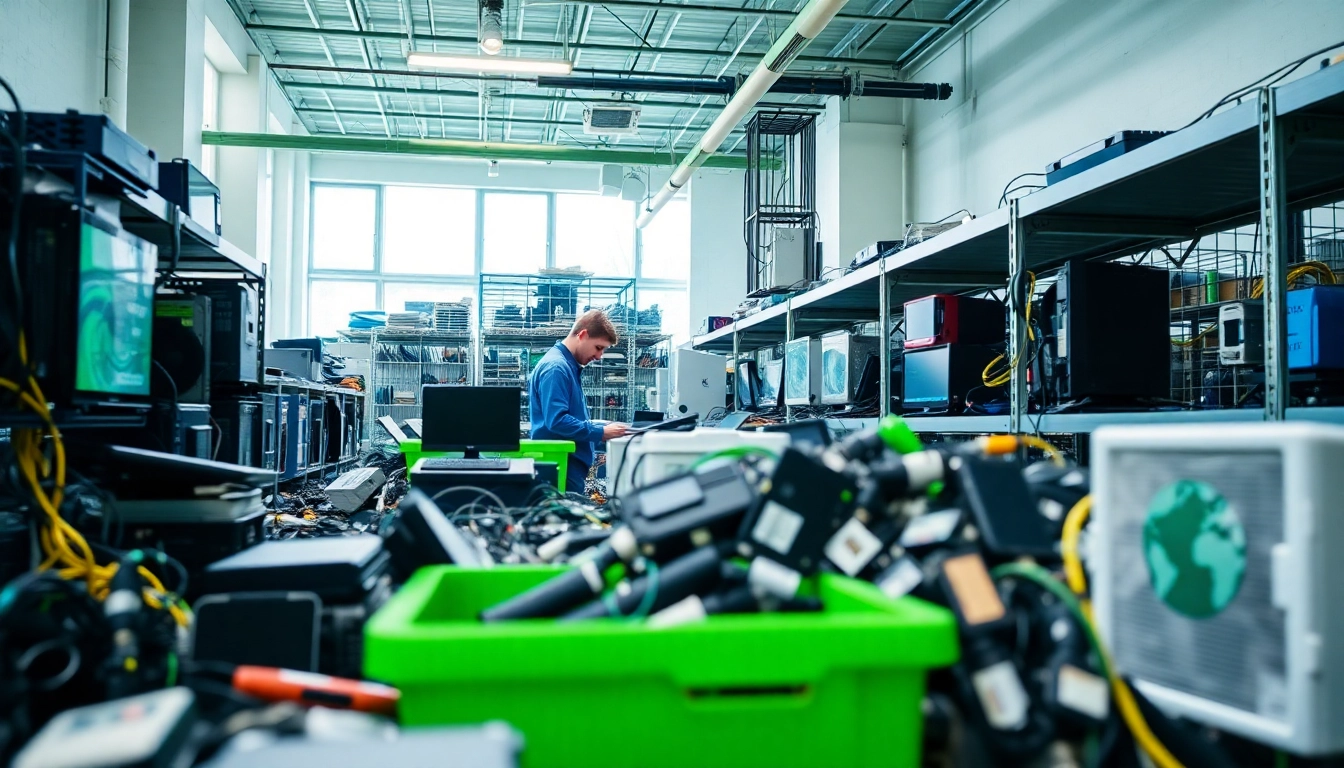Understanding Computer Recycling Bracknell
The rapid advancement of technology continuously results in an influx of electronic devices into our lives, leading to significant challenges in managing electronic waste or e-waste. Understanding the need for computer recycling Bracknell is essential for both individuals and businesses aiming to mitigate their environmental footprint. This article explores the significance of e-waste recycling, how the recycling process operates, and its environmental implications.
The Importance of E-Waste Recycling
Electronic waste encompasses a wide range of discarded electrical and electronic items, such as computers, smartphones, and televisions. Recycling these materials is vital because:
- Resource Recovery: E-waste contains valuable metals like gold, silver, and copper, which can be extracted and reused, thus reducing the need for virgin materials.
- Environmental Protection: Proper disposal prevents toxic substances, such as lead and mercury, from contaminating soil and water resources.
- Energy Savings: Recycling electronics requires less energy compared to producing new products from raw materials, contributing to lower greenhouse gas emissions.
How Computer Recycling Works
The computer recycling process typically involves several steps:
- Collection: Collecting old computers from individuals, businesses, or dedicated recycling events.
- Assessment: Evaluating whether the items are suitable for refurbishing or must be recycled.
- Disassembly: Breaking down computers into their individual components for material separation.
- Processing: Extracting precious metals and other recyclable materials while ensuring hazardous components are safely disposed of.
Environmental Impact of Proper Disposal
Improper disposal of electronic waste can lead to dire environmental consequences. Landfills overflowing with e-waste can result in soil contamination, threatening local ecosystems. Moreover, when e-waste is incinerated, harmful emissions can contribute to air pollution. By promoting responsible recycling, the community can enhance its ecological sustainability and contribute to a healthier planet.
Steps to Recycle Your Old Computers
Assessing What Can Be Recycled
Not all electronic equipment is equally recyclable. Key items to assess include:
- Computers: Desktop PCs, laptops, and components like hard drives and motherboards.
- Accessories: Keyboards, mice, and monitors.
- Networking Equipment: Routers and switches.
Before recycling, it’s essential to ensure that data is securely erased from storage devices to avoid identity theft or unauthorized access.
Finding Recycling Locations in Bracknell
Bracknell hosts various recycling options for old computers:
- Community Recycling Centers: Local facilities often accept e-waste.
- Retailer Programs: Some electronics retailers provide recycling programs where you can return old equipment.
- Special Events: Annual recycling drives organized by local councils or NGOs.
Researching and understanding the available options ensures that individuals can easily dispose of their e-waste responsibly.
Preparation for Recycling: What You Need to Know
Preparing your computer for recycling involves several crucial steps:
- Data Backup: Ensure all important files are backed up before recycling your device.
- Data Erasure: Use software to securely wipe data from hard drives.
- Remove Accessories: Detach peripherals and other components that may not be recyclable.
- Clean the Device: Wipe the surface to prepare it for collection.
Local Initiatives for Computer Recycling Bracknell
Community Programs Supporting Recycling
Bracknell features several community programs aimed at enhancing recycling efforts. These initiatives often focus on:
- Awareness Campaigns: Educating residents about the importance of e-waste recycling.
- Partnerships: Collaborating with local businesses to establish drop-off points for e-waste.
- Workshops: Organizing events to teach individuals about the recycling process and digital responsibility.
Partnerships with Local Businesses
Local businesses play a pivotal role in promoting computer recycling by:
- Providing Drop-off Locations: Many companies offer their premises as drop-off points for old electronics.
- Supporting Local Recyclers: Collaborating with certified recycling companies for responsible disposal and recycling practices.
- Hosting Events: Organizing e-waste collection days in partnership with local councils.
Incentives for Residents to Participate
To encourage residents to engage in recycling efforts, various incentives can be introduced:
- Discounts on New Purchases: Offering discounts for customers who recycle their old electronics.
- Community Recognition: Acknowledging households reaching significant recycling milestones.
- Raffles and Prizes: Organizing contests or incentives for residents who participate in local recycling drives.
Challenges in Computer Recycling Bracknell
Common Misconceptions about E-Waste
Several misconceptions hinder effective e-waste recycling, including:
- It’s Not a Problem: Many believe that e-waste isn’t significant compared to other waste types, ignoring its cumulative impact.
- All Electronics Are Recyclable: Not all e-waste is recyclable; some items may require specific disposal methods due to hazardous components.
Legal Regulations Surrounding E-Waste
Recycling electronic waste is governed by various regulations that aim to ensure safe disposal and environmental protection. Understanding these laws is crucial for compliance and responsible recycling. Engaging with recognized recycling facilities guarantees adherence to local regulations, preventing illegal dumping of hazardous materials.
Overcoming Barriers to Recycling Participation
Barriers such as lack of awareness or accessibility can hinder participation in recycling programs. Strategies to overcome these challenges include:
- Enhanced Education: Implementing comprehensive awareness campaigns to inform residents.
- Accessible Facilities: Providing convenient drop-off locations and collection events.
- Clear Communication: Offering straightforward information about what can and cannot be recycled.
Best Practices for Future Recycling Efforts
Tips for Reducing E-Waste Generation
Engaging in habits that minimize electronic waste is vital for sustainability. Consider these practices:
- Purchase Wisely: Choose quality products that are built to last.
- Repurpose Tech: Instead of discarding, find new uses for old electronics.
- Participate in Repair Programs: Opt for repairs rather than outright replacements.
Innovative Recycling Technologies
Advancements in recycling technologies continue to improve e-waste management. Techniques such as:
- Hydrometallurgical Processes: Efficient extraction of metals from e-waste.
- Artificial Intelligence: Automated sorting and processing of recyclable materials.
- Closed-loop Recycling: Creating a cycle where materials are constantly reused.
Fostering Community Engagement for Sustainable Practices
Building a culture of sustainability within the community involves collaborative efforts among residents, organizations, and local businesses. Encouraging participation in recycling programs fosters a sense of responsibility and collective action toward a healthier environment.
Frequently Asked Questions
What types of computers can be recycled?
Most computers, including desktops, laptops, and their components, can be recycled. Check local guidelines for specifics.
How can I securely erase data from my old computer?
Use specialized software to wipe hard drives or physically destroy storage devices to protect your information before recycling.
Are there costs associated with e-waste recycling?
Many local programs offer free e-waste recycling. However, some specialized services may charge a fee.
What happens to my old computer after recycling?
Post-recycling, your computer is disassembled, and valuable materials are recovered. Hazardous components are safely disposed of per regulations.
Can businesses participate in e-waste recycling?
Yes, businesses can join recycling programs and may even access tailored corporate recycling solutions for their electronics.










